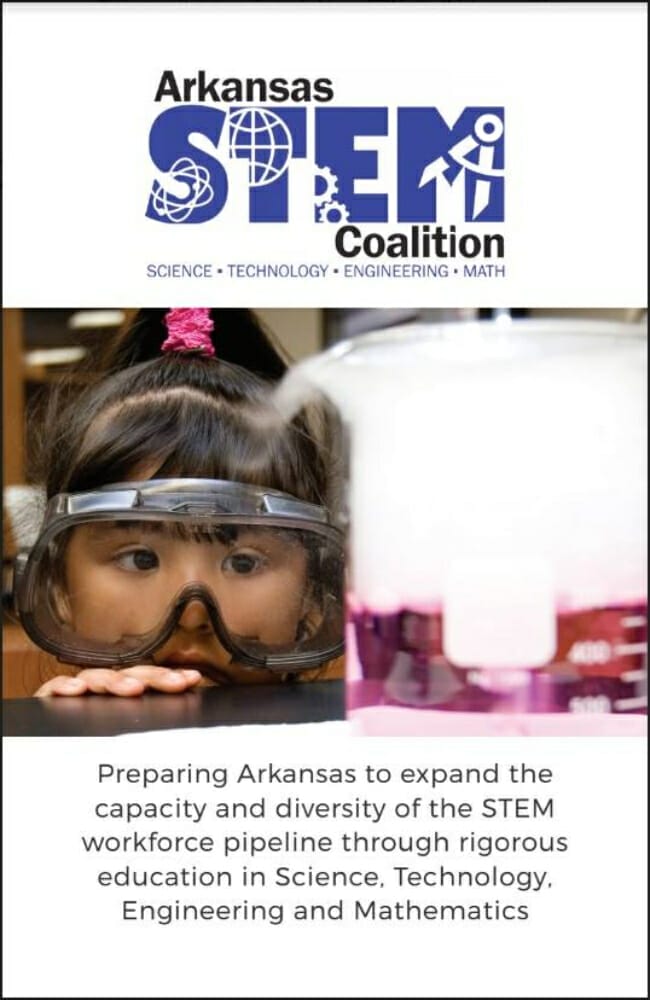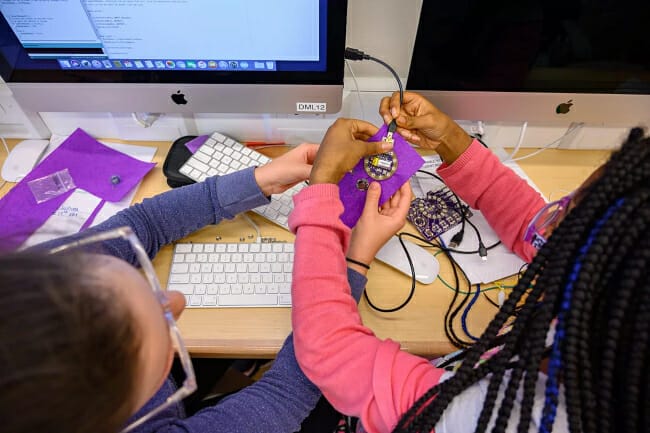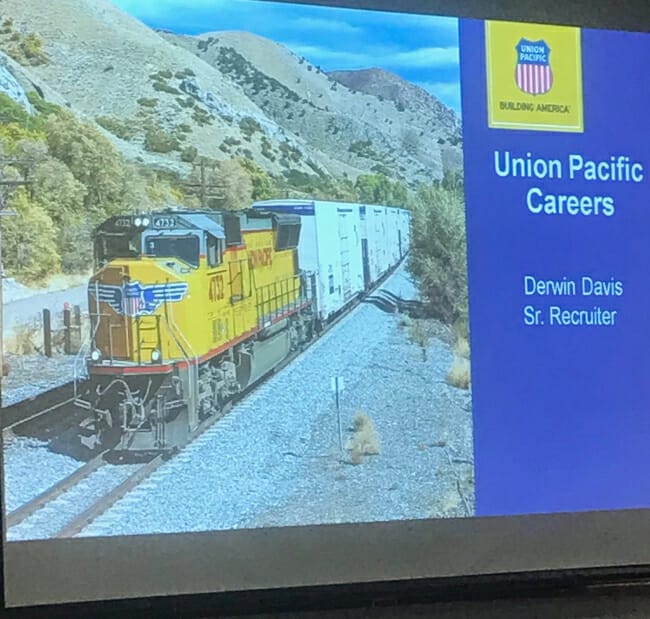

Uh oh...
It appears that you're using a severely outdated version of Safari on Windows. Many features won't work correctly, and functionality can't be guaranteed. Please try viewing this website in Edge, Mozilla, Chrome, or another modern browser. Sorry for any inconvenience this may have caused!
Read More about this safari issue.
676252

While Women’s History Month is about honoring the women in our past and present, it is also about creating a future where all women are equipped to fulfill their dreams and create their own history. Arkansas STEM Coalition is an Arkansas non-profit organization with a focus on bringing Science, Technology, Engineering and Math (STEM) opportunities to girls and students across the state.
Arkansas STEM Coalition formed in 1987 with the help of a $10,000 grant from the National Alliance of State Science and Math Coalitions. The state needed more STEM-educated talent graduating from high schools and universities to fulfill roles in Arkansas businesses. The first grant allowed educators and administrators in Arkansas to receive professional development opportunities in STEM to allow them to better teach STEM subjects in their classrooms.

Twelve STEM centers were established at universities around the state to increase access for teachers and students. These centers, at places like Southern Arkansas University in Magnolia and Arkansas State University in Jonesboro, have had great success in bringing high level training to teachers, professionals and students in their communities. Each center employs a director, a science specialist and a math specialist.
The Arkansas STEM Coalition also supports many programs to elevate and educate students, and several of these focus on involving girls in STEM. Girls Who Code is a national program that the non-profit helps oversee in Arkansas. The program encourages schools to form a Girls Who Code club and supplies schools with $500 grants to get started. The club needs a teacher to sponsor it. “We don’t have as many as we’d like,” Arkansas STEM director Suzanne Mitchell says. “I think this is a very good local one if we can get teachers involved.” The clubs are for girls in 3rd-5th grade and 6th-12th grade. They are free and only take one to two hours a week. Find existing clubs in Arkansas or how to start one at girlswhocode.com.
The Arkansas STEM Coalition also holds STEM Girls Conferences. These conferences are run by the STEM centers in the state and held on university campuses. They allow middle and high school girls to come on campus for the event. The girls attend five to six breakout sessions on different STEM subjects. These are taught only by women and feature local specialists, including doctors, dentists, veterinarians, and professors of various STEM subjects. The 77 conferences have served over 6400 girls in the state. Mitchell says the non-profit is currently searching for more funding to bring the conferences back after a challenging year that saw grant availability drop significantly.

Mitchell is proud of the fact that the STEM Coalition started Million Women Mentors in cooperation with Wal-Mart. “We invited community members, chambers, and businesses and talked about what we can do to attract more girls into STEM.” The result is now an international movement that “encourages girls around the world to pursue, persist and succeed in STEM careers.” (mwmstemconnector.com). The program actively encourages corporate engagement through mentoring, sponsorship and leading Million Women Mentors at the state level. The program currently operates in over 40 states and internationally.
Computers are a large part of STEM education and the Laptop Loan Program helps make computers available to the public for educational purposes. The STEM Coalition has 120 laptops available for churches, non-profit organizations, schools and other groups to borrow. Though not specifically aimed at girls in STEM, Mitchell says the Girl Scouts borrow the computers to help their scouts complete badges in computer skills. The laptops are loaned for $1 each and are thoroughly cleaned between uses.

The coalition’s methods to reach girls and students of all ages and backgrounds are varied. “We started a STEM Venture academy to find students in the 10th grade who are at risk of dropping out but understand science and math concepts and like to work with their hands,” Mitchell says. The coalition has partnered with local companies to bring students in once or twice a month and learn what each company does. “We have 25 students that visited 25 businesses to find out career paths they might like.” Companies like the Electric Cooperatives of Arkansas, Central Arkansas Water and Union Pacific have participated in the program. Union Pacific in particular is currently trying to double the number of women it employs and has reached out to partner with Arkansas STEM Coalition as one way to educate students about the railroad industry.
The coalition has a broad focus on STEM that allows it to support many endeavors. The University of Arkansas for Medical Sciences wanted to promote health careers in Arkansas, so the STEM Coalition sponsored 11 health career days. They targeted 8th-grade students and got students on campus to learn about careers in the health field outside of nursing and medicine. Health techs, paramedics and lab techs all participated. “Their favorite part was the disaster simulation given by the local fire departments,” Mitchell says with a laugh.

The Native American Indian Center of Arkansas recently contacted Mitchell for help in setting up STEM classes for Native American students. This summer, the STEM Coalition will offer tutoring in math and science and classes in robotics, coding and other STEM subjects to these students.
They’re also organizing STEM classes to reach out to migrant communities over the summer. Reaching out in this manner helps the organization target children who might otherwise miss opportunities for STEM education. “We have to find some additional resources to help with translation,” Mitchell says, “but math is math. It’s its own language.”
The coalition also sponsors many other initiatives and maintains a calendar of STEM events across the state, including opportunities for educators, parents, and community members to engage in STEM learning. Sign up for the monthly newsletter to learn more about upcoming opportunities at arkansasstemcoalition.com. You can also find the STEM Center nearest to you to learn more about STEM programs operating in local areas. Another way to help increase STEM learning across the state is to buy an Arkansas Committed to Education license plate. The STEM Coalition receives $25 from each license plate, which helps purchase science and mathematics equipment for 3rd-6th graders.

The STEM fields are growing quickly and people who work in STEM make twice as much as the average salary in Arkansas. STEM education is an important way to cultivate an interest in these fields, increase critical thinking and problem-solving skills, and help students understand what career paths they can pursue. Arkansas STEM Coalition is here to provide every opportunity to Arkansas students to be competitive in a world that increasingly relies on STEM careers.
We do the work.
You check your email.
Sign up for our weekly e-news.
Get stories sent straight to your inbox!









Like this story? Read more from Kimberly Mitchell
Scott Fitzgerald never forgot the feeling of freedom he got from biking...
Trains revolutionized the United States in the 1800s. People and goods...
The American Black Walnut is a unique nut for many reasons, and Arkansas...
Join the Conversation
Leave a Comment